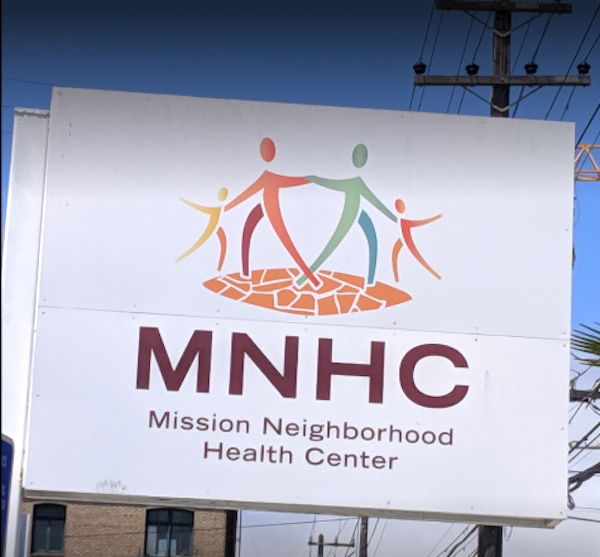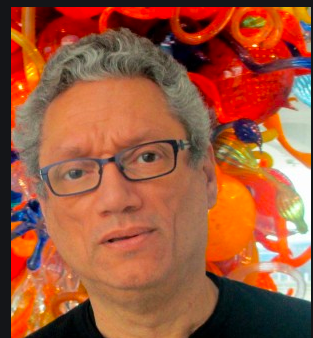
A deadly virus enters the United States and disproportionately hits Black and Brown communities, while the White House fails to respond quickly to the needs of these populations.
The description could aptly fit what is going on today in respect to COVID-19, but also what happened at the start of another pandemic, that of HIV/AIDS, 40 years ago.
“It all goes back to privilege—healthcare privilege and class privilege,” says Alberto Sandoval-Sánchez, professor of Latina/o Studies at Williams College.
Sandoval-Sánchez researches the role that Latinx organizing and creative production has had on the public response to HIV.
“When we look at COVID, and then at what AIDS has done since the eighties and nineties,” Sandoval-Sánchez explains, “we see an intersection of the multiple inequalities that exist in this country and throughout this country’s history.”

Sandoval-Sánchez counts his own blessings. Ever since he was diagnosed with HIV in 1990, he has had access to health care and he could not imagine living through the age of COVID-19 without it.
“I’m completely isolated. I only leave the house once a week, either to get groceries or the pharmacy,” he says. “But there are times where I become paralyzed with fear. AIDS has not killed me, but ironically COVID could.”
While an HIV infection targets the immune system, the CDC maintains that only those who are HIV-positive and are either not taking treatment or have a low number of CD4 white blood cells are at greater risk of suffering the worst of COVID-19.
Help us save local journalism!
Every tax-deductible donation helps us grow to cover the issues that mean the most to our community. Become a 48 Hills Hero and support the only daily progressive news source in the Bay Area.
However, HIV/AIDS care providers in San Francisco have not taken any chances and have transformed the way they deliver treatment to their patients to assure their safety during the age of social distancing.
The Mission Neighborhood Health Center on Shotwell Avenue provides care to 450 people living with HIV through Clinica Esperanza. Fernando Gómez-Benítez, deputy director at MNHC, notes that these patients “have observed an extremely low rate of COVID-19 infections.”
Only five of these patients have tested positive for COVID, a number much lower than the HIV-negative population.
“We have tested for COVID-19 about 1,200 adult and pediatric patients of our almost 13,000 MNHC enrolled patients,” Gómez-Benítez explains, “and almost 20 percent of those tested have a positive COVID-19 result.”

Something similar is taking place at the General Hospital’s HIV clinic. Dr. Carina Márquez, director of the SALUD Clinic at Ward 86 and professor at UCSF, has also seen low numbers of people living with HIV come in with COVID.
“We don’t know exactly why this is the case right now,” Márquez explains. “One reason could be that people with HIV see themselves at higher risk and for that reason they are more likely to stay in the house, use masks when they are with other people and just follow more the public health recommendations.”
Márquez also points to the possible positive impacts of HIV medication. “We in San Francisco have a high rate of viral suppression and people are using their HIV medicine,” she clarifies. “For that reason, their immune systems are strong.”
The third pandemic
While the number of COVID cases amongst the HIV-positive population has remained stable, the real challenge for physicians is how to continue providing treatment through shelter-in-place and social distancing.
At both MNHC and SFGH, staff now deliver HIV medications directly to patients’ homes and conduct medical and support services through the phone. However, a video call can only do so much.
In the case of counseling and therapy, technology permits this care to continue but sets up other obstacles. “Communicating this way is already difficult for those that already feel uncomfortable talking about intimate things,” says Dr. Eduardo Morales, psychologist and director of Águilas, a Castro-based organization that provides counseling, HIV testing, and social support to bisexual and gay Latinos.
In-person counseling at Águilas would be a physical space to connect members to other resources, like immigration experts. “We have folks that come to us because they’re seeking political asylum after leaving their countries because they were targeted for who they are,” says Morales.
Without these spaces, Águilas has adapted to host virtual dialogues on Instagram Live to discuss asylum and immigration policy. Instagram and other social media platforms have become sites where other organizations like Águilas continue to share information on health resources and moral support to those living with HIV through COVID.
Yet, these resources are only available to those with a cell phone. “Some of our patients don’t have cell phones,” Márquez points out. For patients she can reach via phone, it’s still difficult to keep track of other factors that can impact their wellbeing.
“In addition to all the medical needs, social needs are increasing. The need for food, rent support, and financial support, become such big issues,” Márquez explains. “They were big before but they have been magnified. They destabilize your ability to take your meds, your financial needs, and your mental health.”
Financial challenges can even impact a person’s decision to take a COVID-19 test. “There may be a fear of having to self-isolate, and the implications that has on your job,” Márquez signals, “if you’re not feeling sick then you might not take the test.”
Not every worker has access to unemployment benefits or wage protection, especially those that work informally or do not have immigration documentation. In response to that, City Hall
created the Right to Recover Program, which allocates two weeks of wages to workers that test positive for coronavirus and have no way to make up for their income lost during quarantine.
Community-centered treatment
Two driving forces behind Right to Recover were UCSF staff and members of the Latino Task Force, a coalition of multiple organizations throughout the city that formed to provide an intersectional response to the needs of the Latinx community through COVID.
“We are seeing such a disproportionate toll on Latinos and without the community, we cannot address this issue head-on,” Dr. Márquez explains, “we’ve known that with HIV and the HIV response, and we still know that with COVID-19.”
UCSF and LTF partnered up again to form the “Unidos en Salud” campaign, which tested almost 4,000 people in the Mission during April.
“People came out to test and participate in the study because the community was behind it,” Márquez says, “The community could answer the questions, be educated, and their needs were understood.”
LTF connects healthcare with financial assistance and food support to confront the social impacts of the pandemic—an approach that reminds Sandoval-Sánchez of Proyecto ContraSIDA Por Vida, a youth-led collective that operated through the 1990s and early 2000s in the Mission.
“Proyecto led an immense campaign to center the neighborhood aspect of HIV,” Sandoval-Sánchez explains. “It was an explicitly queer project that targeted questions of citizenship, health, and unemployment.”
While PCPV (or in English, “Project Against AIDS, For Life”) shut down in 2005, its legacy continues through El/La Para TransLatinas, and this organization’s commitment to providing HIV prevention resources to the transgender Latinx community.
“In the Latinx community, we fight every day for our neighborhoods—an eternal struggle to survive,” says Sandoval-Sánchez, “this struggle motivates a campaign to mobilize the people, and consequently we have a way to relieve pain and suffering.”

